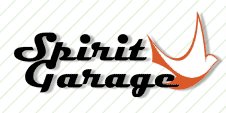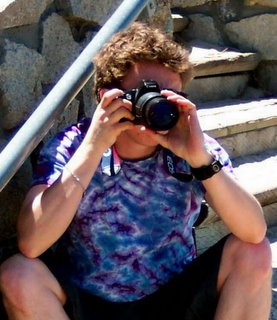
 Hmmm, it seems I haven’t blogged on this blog since last BADD. I have actually been writing/arting about anti-ableism in other venues:
Hmmm, it seems I haven’t blogged on this blog since last BADD. I have actually been writing/arting about anti-ableism in other venues: Welcome Ministry blog
Facebook profile
Flickr photostream
Now, even on Twitter (although I’m challenged by limiting anything to 140 characters!)
As I'm really short on time this week, since I've been in DC and am preparing to preach on Sunday, here's a hasty photo commentary on ableism in this year of my life.
Pigeons can look past ableism in sexuality—why can’t humans? Sins Invalid sounds like absolution, and it is in a way for the ways in which we limit our own and others’ sexuality by ableism, and what it means to claim it back.
I am learning more and more that when I present about any oppression, that without a broad anti-oppression framework I wouldn’t be doing justice.
One of my mentors, above shown continuing to work through retirement with Alzheimer's reminds me that ageism and ableism are equally damaging in limiting many people’s older lives.
We can all get so caught up in single-issue organizing that anti-ableism gets lost, especially without actual bodies reminding us of access needs.
I work at the Welcome Ministry, where we are blessed with volunteers and community members with a variety of disabled experiences. I’ve learned to use a lot of self-disclosure, because so many people have no idea how it’s possible to create policies and climates that minimize disablement and accommodate for individual disabilities.
In working with this community, I am reminded that one of the most disabling aspects of ableism is the all-encompassing vice grip of the kind of ableism that says “you’re not disabled, you should be able to do things like everyone else,” in the face of real differences that could be easily accommodated, and “you’re too disabled to do anything,” stopping people from trying. Add layers of ageism, classism, poverty, racism, multiple layers of trauma, and other oppressions, and people get blamed for the disabling impacts of society on an oppressed body.
I find myself missing my disability rights and anti-ableism communities in other cities. I’m not sure how much of this is a lack of community (I suspect a lot) and my autistic introversion that leaves little energy to seek community while doing people-heavy work. I find it exciting to run into people in other communities who seem to be participating in Deaf/disabled worlds.
Bathroom access is a huge issue in San Francisco. The homeless/poverty community is often without access to bathrooms, and finding an accessible bathroom (if you can find an accessible building) in the city is daunting. I’d been warned about how bad access is across the bay from the start of the Disability Rights movement seems like another world.
I had been looking for a program to get a service dog for a great long while. My disability access needs don’t fit into the established categories, one of my disabilities is being really allergic to most dogs used in service dog breeding, and I’m an adult who has very different needs than children in autism dog programs. I looked for a training program locally, and again found lots but none that were willing to work with a dog for a combination of crowd-avoiding and doorjam-sparing mobility, sensory integration, fetching, and medical alerting. Eventually, we decided to find a rescue dog so that we could fill the animal void, reduce stress, and give someone a home. I was hoping but not expecting that a dog we might find could be self/professional trained for service work. So we adopted Frida, a scraggly muttish dog who had been found wandering in the Central Valley and was not wanted by her previous family who’d adopted her from a humane society. She turned out to be an exceptionally well-mannered beautiful adult Soft-Coated Wheaten Terrier with some training experience.
I started training Frida, and found she was a fast learner and motivated. I looked for a trainer, and kept running into a combination of weird needs with ableist (or at least specific in unhelpful ways) responses to inquiries about professional training assistance. We found our way to Darn Far Ranch Professionally-Guided Owner Trained program. Their philosophy about most dogs and most people being able to handle service work with the right tools has been empowering, Frida has been working hard as a Service-Dog in Training.
-Youth + apparent fitness=*not disabled*, despite other evidence (I see this as tied to youth oppression and ageism)
-If it isn’t physically apparent, it must not be *real* (even if it is actually physically based) -Psych impairments are so oppressed in our world where “crazy” is a casual descriptor. While autism is not really a psych disability but a neuro-developmental disorder or different sensory processing, I feel responsibility not to refute people’s perceptions of me as having a psych impairment. It’s a challenging (and probably mostly misunderstood) line to question people’s prejudices about psych impairment without claiming an experience I do not have. -A really cute dog of an unusual breed with a trainer that looks like me *must* be training the dog for someone else. When people don’t know how to respond appropriately to service dogs in general and then think that the dog is being trained for someone else, really weird interactions ensue that my aspie brain has difficulty following, especially because my language processing gets most affected when I’m in crowded social situations.
-I am reminded daily of the enormous amounts of privilege that I draw on to use a service dog: -Having a job (in the city where I live one cannot afford ¾ the rent for a studio apartment on SSI)
-Having a job that pays sufficient to afford a dog and training
-Being able to choose to live in a building that allows dogs, or that understands Fair Housing law
-Working with an employer that chooses to accommodate my disabilities despite not being under the ADA or other laws of non-discrimination
-Passing privilege, even though it doesn't match with my identity as disabled and genderqueer
-Having a stable enough work and housing situation to maintain this
-Working in a job which prioritizes working for legislative and anti-oppression changes
And that leads us to the lead photo. Frida, Pastor Megan, and I were in Washington DC this week with the Transgender Religious Leader’s Summit and National Center for Transgender Equality Lobby Day. We lobbied for passage of the Senate version of the Hate Crimes Bill, which if passed by the House will be the first federal law to specifically protect any rights of transgender people. Granted, the rights of being protected if we’re attacked or killed is not even much of a starting place, but a law that names ableism with trans and sexual orientation discrimination in hate crimes is still a chance to educate systems about some of the ugly realities of oppression.
Legislative and cultural changes aren’t the end of oppression, but they feel like a beginning. Frida agrees. But she says next time we’re in DC, she wants to protest with ADAPT.



